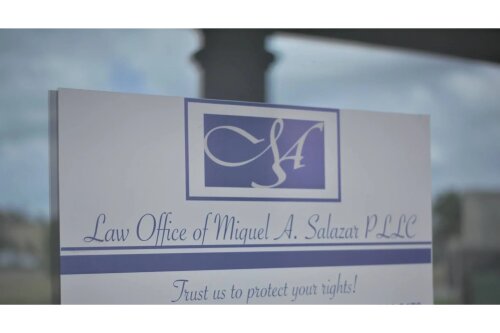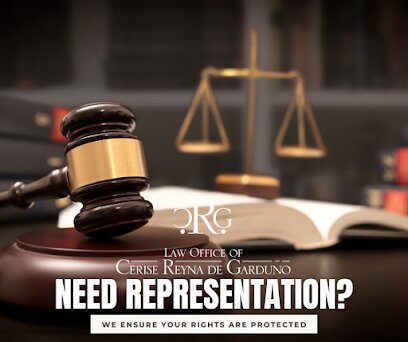Best Accidents & Injuries Lawyers in Indiana
Share your needs with us, get contacted by law firms.
Free. Takes 2 min.
Or refine your search by selecting a city:
List of the best lawyers in Indiana, United States
United States Accidents & Injuries Legal Articles
Browse our 1 legal article about Accidents & Injuries in United States written by expert lawyers.
- What to Do After a Serious Car Accident in the US: A Legal Step-by-Step Guide
- Call 911, get medical help, and do not admit fault. Photograph the scene, vehicles, and your injuries, and get witness names and the officer's report number. Report the crash to your insurer quickly. In no-fault states, PIP deadlines are short (e.g., Florida requires initial treatment within 14 days; New York... Read more →
About Accidents & Injuries Law in Indiana, United States
Accidents and injuries law in Indiana, also known as personal injury law, covers legal claims that arise when someone is harmed because of another party's negligence or intentional actions. These cases can involve car accidents, slips and falls, workplace accidents, medical malpractice, product liability, and other situations where physical or emotional harm occurs. Indiana's laws are designed to help injured individuals recover compensation for their losses, such as medical bills, lost wages, and pain and suffering. Understanding your rights and the legal process can make it easier to move forward after an accident.
Why You May Need a Lawyer
There are many situations in which an attorney who specializes in accidents and injuries can be valuable. Insurance companies often have their own legal teams working to minimize payouts. A lawyer can advocate for your interests, negotiate on your behalf, and ensure you receive fair compensation. Victims may need legal help when fault or liability is disputed, when injuries are severe, when multiple parties are involved, or when a settlement offer seems too low. Additionally, some cases involve complex legal issues such as governmental immunity, comparative fault, or long-term disability, making experienced legal guidance essential.
Local Laws Overview
Indiana follows several key legal principles regarding accidents and injuries:
- Comparative Fault: Indiana uses a modified comparative fault system. If you are partially at fault for your injury, you can still recover damages as long as your share of fault is 50 percent or less. Your compensation will be reduced by your percentage of fault.
- Statute of Limitations: In most personal injury cases, you must file your lawsuit within two years from the date of the accident. Certain exceptions apply, such as claims against governmental entities, which may have shorter notice deadlines.
- Damage Caps: Indiana law limits the amount that can be recovered in some types of cases, such as medical malpractice and claims against state or local government agencies.
- No-Fault Rules: Indiana is an at-fault state, meaning the party who caused the accident is typically responsible for covering the damages.
- Minimum Insurance Requirements: Drivers are required by Indiana law to carry minimum amounts of liability insurance. However, not all drivers comply, which can affect recovery if the at-fault driver is uninsured or underinsured.
Understanding these and other Indiana-specific rules can help you make informed decisions after an injury-causing accident.
Frequently Asked Questions
What should I do immediately after an accident in Indiana?
Check for injuries and seek medical attention if needed. Report the accident to the authorities, gather evidence such as photos and witness information, and notify your insurance company. It is advisable to avoid making statements about fault at the scene.
How long do I have to file a personal injury lawsuit in Indiana?
You generally have two years from the date of the accident to file a lawsuit. Missing the deadline can prevent you from pursuing compensation, so consult a lawyer as soon as possible.
Can I recover compensation if I was partially at fault for the accident?
Yes, under Indiana's comparative fault law, you may recover compensation if you are 50 percent or less at fault. Your recovery will be reduced by your percentage of fault.
What types of damages can I recover in a personal injury case?
Recoverable damages can include medical expenses, lost wages, pain and suffering, property damage, and sometimes punitive damages if the defendant acted egregiously.
Do I have to go to court to resolve my claim?
Not all cases go to court. Many are settled through negotiation with the insurance company or out-of-court settlements. A lawyer can assist in reaching a fair agreement or represent you in court if needed.
What if the person who caused my injury does not have insurance?
You may be able to file a claim under your own uninsured or underinsured motorist coverage if you have it. A lawyer can explain your options based on your individual policy and circumstances.
How is fault determined in Indiana accident cases?
Fault is determined based on evidence such as police reports, witness statements, photographs, and expert analysis. Indiana follows a comparative fault system to assign percentages of responsibility.
Are there limits on how much I can recover in an Indiana personal injury case?
Yes, certain types of cases, such as claims against government bodies and medical malpractice cases, have statutory limits on damages. For other cases, there is typically no cap on economic or non-economic damages.
How much does it cost to hire a personal injury lawyer?
Most Indiana personal injury lawyers work on a contingency fee basis, meaning you do not pay unless they recover compensation for you. The fee is usually a percentage of the settlement or award.
What should I bring to my first meeting with a lawyer?
Bring any documentation related to your accident, including police reports, medical records, insurance information, photos, and a list of expenses and lost wages. This information helps the lawyer evaluate your case.
Additional Resources
For further support and guidance, you may find these Indiana resources helpful:
- Indiana State Bar Association - Information about finding and verifying licensed attorneys in Indiana.
- Indiana Department of Insurance - Guidance on auto insurance claims and consumer services.
- Indiana Bureau of Motor Vehicles - Vehicle accident reporting and records.
- Indiana Occupational Safety and Health Administration (IOSHA) - Information on workplace accidents.
- Local legal aid organizations - Help for individuals who qualify for free or reduced-cost legal services.
Next Steps
If you have been injured in an accident in Indiana, your first steps are to ensure your immediate safety, seek medical attention, and document the accident as thoroughly as possible. Do not admit fault or sign anything from an insurance company without understanding your rights. Consult with an experienced Indiana accidental injury lawyer to discuss your situation, protect your interests, and determine the best way to proceed. A lawyer can help you understand whether you have a viable legal claim and guide you through the legal process to pursue fair compensation.
Lawzana helps you find the best lawyers and law firms in Indiana through a curated and pre-screened list of qualified legal professionals. Our platform offers rankings and detailed profiles of attorneys and law firms, allowing you to compare based on practice areas, including Accidents & Injuries, experience, and client feedback.
Each profile includes a description of the firm's areas of practice, client reviews, team members and partners, year of establishment, spoken languages, office locations, contact information, social media presence, and any published articles or resources. Most firms on our platform speak English and are experienced in both local and international legal matters.
Get a quote from top-rated law firms in Indiana, United States — quickly, securely, and without unnecessary hassle.
Disclaimer:
The information provided on this page is for general informational purposes only and does not constitute legal advice. While we strive to ensure the accuracy and relevance of the content, legal information may change over time, and interpretations of the law can vary. You should always consult with a qualified legal professional for advice specific to your situation.
We disclaim all liability for actions taken or not taken based on the content of this page. If you believe any information is incorrect or outdated, please contact us, and we will review and update it where appropriate.
Browse accidents & injuries law firms by service in Indiana, United States
Indiana, United States Attorneys in related practice areas.
Browse accidents & injuries law firms by city in Indiana
Refine your search by selecting a city.
















